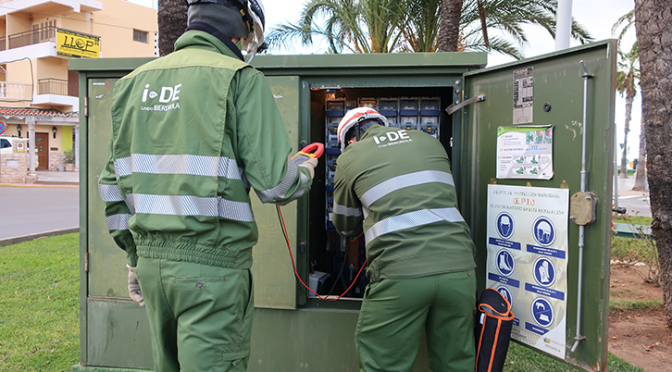- The utility has 400,000 transformer stations serving 31 million supply points in its distribution and transmission networks.
- The aim is to increase quality through the complete digitalisation of the transformation centres.
Iberdrola is strengthening one of its key business areas: distribution and transmission networks. Through its PERSEO start-up programme, the utility is seeking solutions that enable the early detection of incidents in the installations and equipment of the transformation centres responsible for modifying the voltage so that end users can make use of the energy. The mission is to improve the quality of service by reducing incidents in the supply and in the installations themselves.
In its mission to continue advancing in the electrification and decarbonisation of the economies of the countries in which it operates, the electricity company chaired by Ignacio Galán has launched a challenge to improve the operation of its transformation centres. These are key in the process of distributing electricity through the grid, as they are responsible for modifying the voltage so that end users can use the energy in their homes or businesses.
Iberdrola has more than 400,000 transformer stations in the United States, Brazil, the United Kingdom and Spain, with more than 1.5 million medium to low voltage distribution transformers, built and operated to provide a high quality and reliable service to some 31 million electricity supply points.
The challenge is launched within the framework of the new smart grid innovation centre, the Global Smart Grids Innovation Hub, which Iberdrola has made a global benchmark in smart grids. The aim of this hub is to foster open collaboration and coworking between technicians from the Iberdrola group’s electricity distribution company, i-DE, suppliers, start-ups and different organisations from around the world.
The networks business is crucial for Iberdrola, which announced at its Capital Markets & ESG Day on 9 November that it will allocate 57% of the total 47 billion euros in planned investments between 2023 and 2025 to this area – around €27 billion.
The digitalisation of the grid carried out by Iberdrola provides the centres with new equipment to monitor the conditions of the installation and critical equipment, such as medium-voltage switchgear, the low-voltage switchboard and the digital equipment itself. This information enables preventive maintenance to be carried out, anomalies to be detected, dangerous situations to be avoided and possible breakdowns and incidents to be anticipated.
Thus, projects should detect any generic alarm signals in transformer substations, from CO2 levels, temperature, humidity or possible flooding. They may also be based on optical and thermographic cameras. In addition to the sensor system, companies wishing to participate must propose data processing and alarm management.
The challenge will also value the incorporation of advanced technologies, such as thermal infrared, Internet of Things (IoT), Artificial Intelligence, among others.
The team of experts from Iberdrola’s network business will be responsible for selecting the innovative solution or solutions that enable the early identification of incidents at transformer substations.
The engine of start-ups in the energy sector
This year, Iberdrola celebrates 15 years of innovation in the energy sector through its start-up programme, PERSEO. This has helped the utility to launch innovative solutions to promote renewable energy, decarbonisation and electrification of the economy, digitalisation of grids, promotion of efficient storage and care for the environment. The initiative, with nine companies currently in its portfolio, has created a global ecosystem of start-ups over the years with an investment of 175 million euros.
The programme’s ecosystem includes more than 7,500 start-ups, including unicorns – companies valued at more than $1 billion – such as electric vehicle charging solutions manufacturer Wallbox and Stem, which offers smart battery storage solutions.
Pilot projects give start-ups access to large volumes of data and real energy assets by testing their technologies in a real environment, while at the same time offering investment to start-ups with the highest growth potential. These two formulas provide insight into the market and first-hand access to key technologies.


